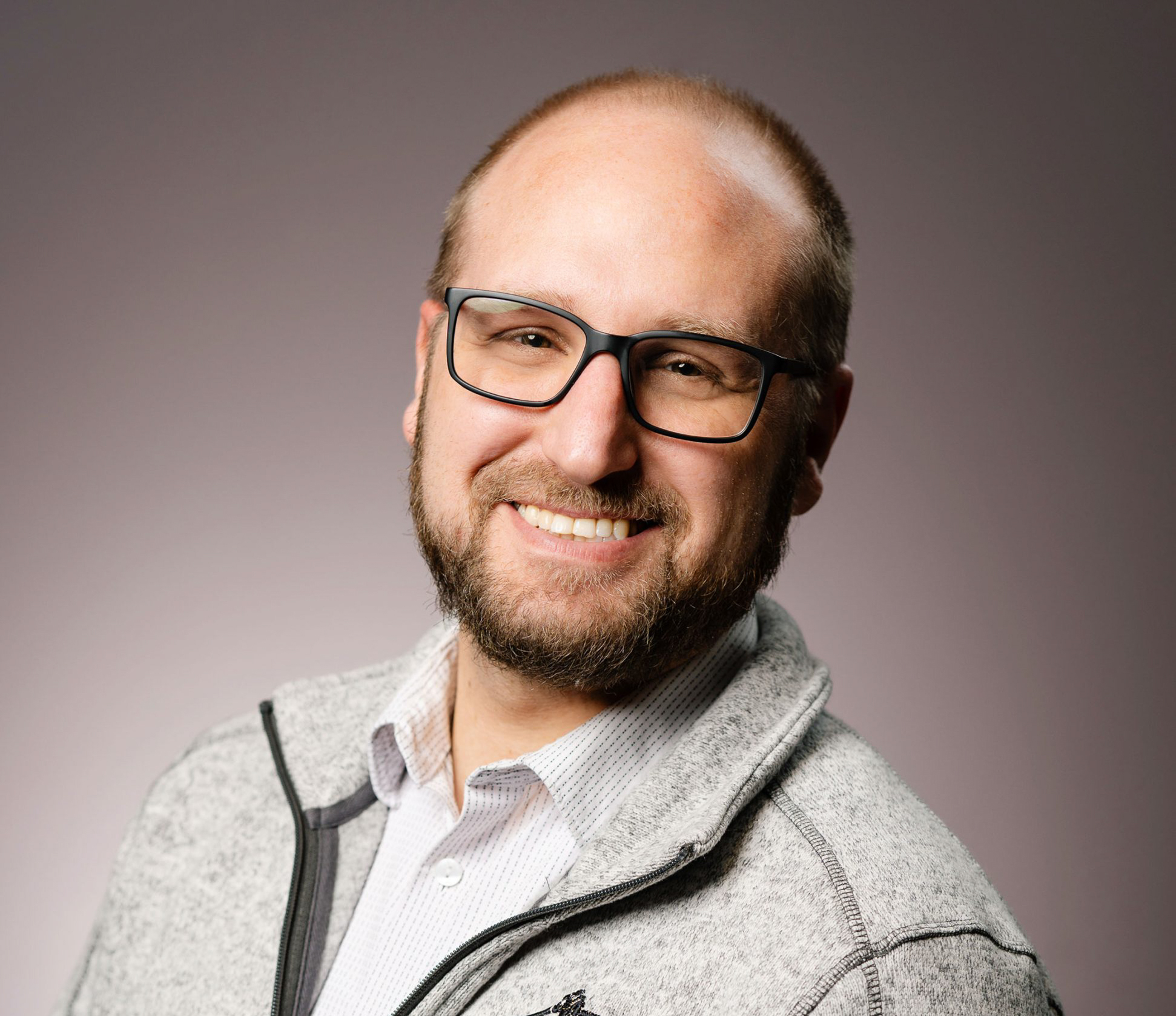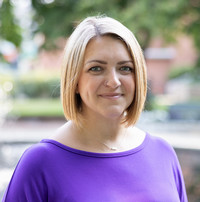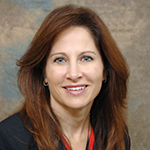Evidence Based Trauma Treatment
The Evidence Based Trauma Treatment Certificate provides students with the opportunity to develop competencies in
- working with individuals who have experienced trauma and
- implementing an evidence-based practice.
The certificate is open to Clinical Practice students. Required course work is completed in the Spring, Summer or early fall semester in advance of the final MSW field placement.
Students are invited to apply for the certificate upon admission to the MSW program. Information sessions about the certificate will be held early in each Fall semester. Certificate applications will be due by the end of September.
Full time Advanced Standing students are encouraged to meet the early bird MSW program application deadline to increase the likelihood that they will be able to complete required summer coursework and secure a certificate focused field placement.
Program Components
Students will choose to focus their certificate work in
- working with children and adolescents who have experienced complex trauma, or
- survivors of relationship violence and sexual assault.
Certificate students will take two required elective courses (4 credits and minimum grade of 3.0) in Special Topics in Social Work Practice. These courses are titled Core Concepts in Trauma and Treatment Applications in Trauma. Required coursework is completed in preparation for the field placement experience and occurs in the spring, summer, or early fall prior to or in conjunction with the field placement. The certificate coordinator will meet with students to review certificate requirements and to develop a plan to meet coursework and field placement requirements.
The Treatment Applications in Trauma course will include participation in Trauma Focused Cognitive Behavioral Therapy (TF-CBT) or Cognitive Processing Therapy (CPT) training. These trainings are 2 and 3 days long respectively. Students will be placed in a specialized placement with a field instructor who has completed training and consultation in the evidence-based model. Additional learning is supported through integrated field seminars and required participation in regular clinical consultation sessions.
Efforts will be made to develop or identify placement resources in the communities where students wish to be placed. There are limited resources and options in some communities. Students should indicate that they have applied for the certificate when they complete their field application for their final clinical field placement.
Certificate Participant Interviews
"I graduate in two months and I feel that I have the knowledge, the training, and the confidence to make a difference in the lives of the children I serve. I definitely have the Evidence Based Trauma Treatment Certificate program to thank for that!"
"The highlight of my experience with this certificate has been watching my clients begin with high scores on their assessments for PTSD and depression, and then to finish the 12-week therapy model Cognitive Processing Therapy (CPT) not even meeting diagnostic threshold criteria for either PTSD or depression."
"The classes I took as part of the trauma certificate were the most directly applicable and interesting classes that I took in this program…learning Trauma Focused - Cognitive Behavioral Therapy (TF-CBT) so early in my career has enabled me to help my clients more effectively."
Evidence Based Trauma Treatment Certificate Faculty

- Certificate Coordinator
- NCTSN Core Curriculum in Child Trauma - Certified Advanced Facilitator and Faculty

- Faculty liaison and facilitator of Integrative Seminar
- NCTSN Core Curriculum in Child Trauma - Certified Facilitator
- Cognitive Processing Therapy – National register provider status
- Trauma-Focused Cognitive Behavioral Therapy – Nationally Certified Clinician, Nationally Certified Supervisor/Consultant

- Faculty liaison and Facilitator of Integrative Seminar
- Trauma-Focused Cognitive Behavioral Therapy – Nationally Certified Clinician, Nationally Certified Supervisor/Consultant
- NCTSN Core Curriculum in Child Trauma - Certified Facilitator

- Faculty Liaison and Facilitator of Integrative Seminar
- Cognitive Processing Therapy – National register provider status
Evidence Based Trauma Treatment Certificate Trainers and Consultants

- Trauma-Focused Cognitive Behavioral Therapy Nationally Certified Clinician, Supervisor/Consultant and approved co-trainer
- NCTSN Core Curriculum in Child Trauma - Certified Advanced Facilitator and Faculty

- Trauma-Focused Cognitive Behavioral Therapy – Developer approved Trainer

- Cognitive Processing Therapy Model Developer, Trainer and Consultant
https://cptforptsd.com/
Evidence Based Trauma Treatment Certificate Agency Partners (agencies that have accepted students in recent years)
Children and Adolescents with Complex Trauma
- Carehouse of Oakland County
- Catholic Charities of Jackson, Lenawee and Hillsdale Counties
- Child Advocacy Center of Kent County
- Child Advocacy Center of Lapeer
- Child and Family Charities – Lansing, MI
- Community Mental Health of Central Michigan (Mt Pleasant and Midland)
- Community Mental Health of Clinton, Ingham and Eaton Counties – Families Forward
- Genesee Health Services – Flint
- Grand Rapids Schools Behavioral Health
- Gratiot Integrated Health - Alma
- HAVEN of Oakland County
- Hiawatha Behavioral Health - Sault Ste Marie
- Jewish Family Services of Ann Arbor
- LaCasa Children’s Services - Howell
- Northeast Michigan Community Mental Health - Alpena
- Resilience of Holland
- Services of Hope in Muskegon
- Shiawassee Health and Wellness
- Small Talk Child Advocacy Center – Lansing
- St Clair County CMH – Port Huron
- Voices for Children Advocacy Center – Genesee and Shiawassee Counties
Relationship Violence and Sexual Assault
- Center for Survivors – MSU
- HAVEN of Oakland County
- LaCasa Adult Services - Howell, MI
- Mind Body Solutions – Grand Rapids
- Northstar – Lansing, MI
- Women’s Center of Greater Lansing
Background Information and History of the Evidence Based Trauma Treatment Certificate
In 2010, the School of Social Work piloted a project that was funded with a grant from the National Center for Social Work Trauma Education. The National Center was funded by SAMSHA and a part of the National Child Traumatic Stress Network. The project’s mission was to address a national shortage of front line social workers able to provide child trauma treatment by building workforce capacity to deliver culturally competent, evidence-based child trauma treatment in our communities by building the capacity of schools of social work, social work students, and community-based agencies. This important work laid a foundation for the current certificate. In the ten years since its beginning, more than 150 students have completed the certificate.
In 2018, in response to needs identified by agency partners, the School expanded the certificate to include an alternate focus on Relationship Violence and Sexual Assault.
This certificate includes a specialized field placement. To provide this field experience the School has continued to partner with community agencies to support developing their capacity to implement evidence-based practice and host students in this specialized field placement. The certificate focuses on two practice models. Trauma-Focused Cognitive Behavioral Therapy (TF-CBT)is a model that treats children ages 4-17. Cognitive Processing Therapy (CPT) is a model that serves adolescents and adults. The School’s Continuing Education program regularly offers training in both models. In addition, through this certificate that School provides support to engaged agencies around implementing these models.
Central to the certificate is a course and related seminars that utilize the Core Curriculum on Childhood Trauma developed by the National Child Traumatic Stress Network. This unique course utilizes problem-based learning to teach students about evidence-based practice and the developmental impacts of a range of trauma types, including community violence, interpersonal violence, abuse, neglect, war, and national disaster.
Each cohort of students also participates in integrative field seminars that are facilitated by faculty who have experience in clinical settings implementing these evidence-based treatment practice model.
Frequently Asked Questions
No, they are optional.
No. The courses, training and field experience provide a valuable basis for potential national certification in both of these models. The School of Social Work uses nationally certified trainers and consultants for both of these models. Each of the models has a website which outlines the exact requirements for national certification.
In some, but not all instances. The certificates that could possibly also be earned include the Child Welfare and the Chance at Childhood Certificate if students are not in the Advanced Standing program and complete two separate field placements with the first placement in a Child Welfare agency or at the Chance at Childhood Clinic. The certificate coordinators, field placement coordinator and your academic advisor must all agree, and it must be possible for you to complete all the requirements for both Certificates. Inquire early, this takes much planning.
No. The Certificate is internal only.
Contact Person
Cheryl Williams-Hecksel
Evidence Based Trauma Treatment Certificate Coordinator
will1534@msu.edu

